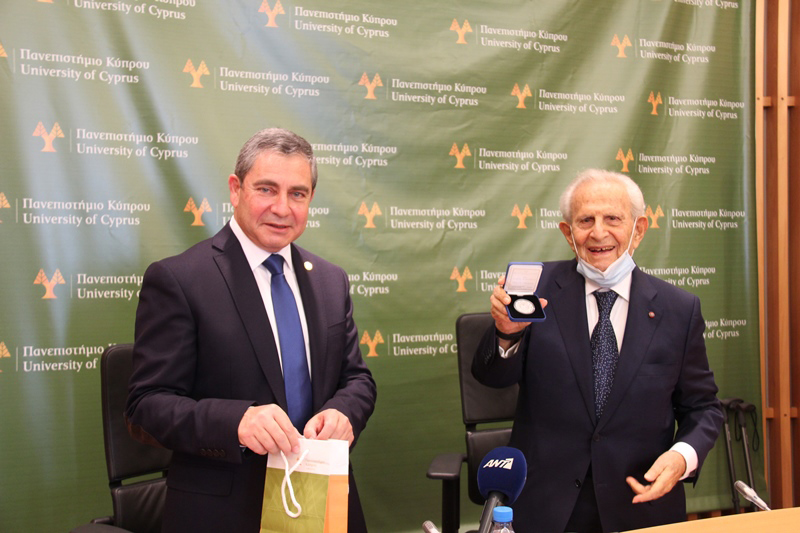Construction of the University of Cyprus’ medical school at the Athalassa campus will get underway in January following the signing on Friday of the building contracts.
University of Cyprus benefactor Nicos Shacolas and members of his family were on hand as the contracts for the 8,500 square metre building were signed by rector Tasos Christofides and Aristotelis Aristotelous, general manager of A. Aristotelous (Construction) Ltd.
To be named “Building of the school of medicine and health sciences ‘Nicos Shacolas’” it will be largely financed by the Nicos and Elpida Shacola Foundation which in 2014 donated €9m to the University of Cyprus for this purpose. The foundation had previously made the Shacolion health education centre available to house the university’s medical school. It will continue to house the clinical units of the school to build on synergies with Nicosia general hospital.
Construction will start on January 10 with targeted completion in 2025. Beyond an architectural landmark for Cyprus, it aspires to entrench the medical school as a centre of excellence, the University of Cyprus said in an announcement.
Rector Christofides hailed the signing and said that the university and its students and academics would be forever grateful to the benefactors. Shacolas praised the university and said he was certain that the new building to house the medical school would enhance the respect it enjoys and the work it does.
President of the board of the university Andreas Christofides thanked Shacolas and his family whose generosity as regards the new building will boost the medical school, and Cyprus more generally.
The building follows an international architectural competition which received 63 entries from nine countries. The first prize was awarded to Antonio Gonzalez Liñán and Antonio Gonzalez Cordón of Seville-based SV60 ARQUITECTOS.
It incorporates bioclimatic design and technology that makes use of renewable energy and has been designed to secure Leed (green building) Gold certification.
Budgeted at €15m, the project is being financed by a loan from the European Investment Bank, a loan from the Council of Europe’s development bank, the state, the university’s own funds and the €9m donation.







Click here to change your cookie preferences